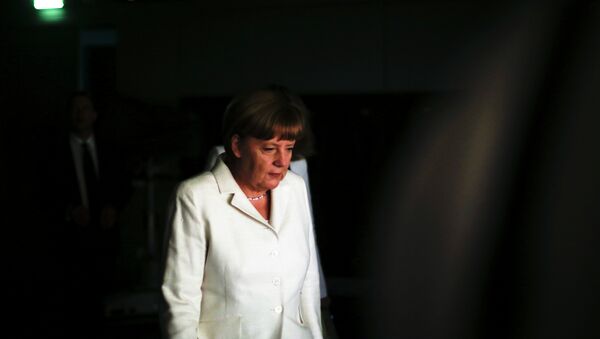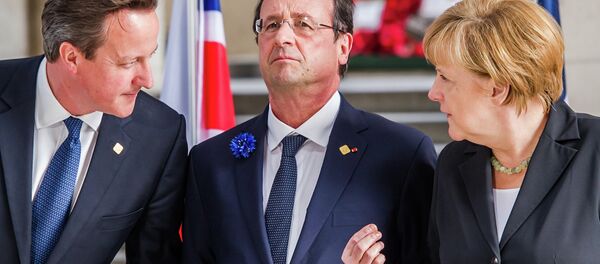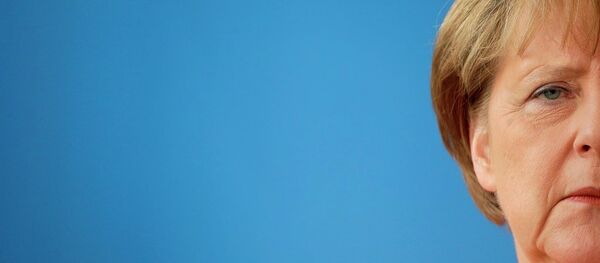Merkel survived a brutal mauling in the German parliament last Friday, as she battled to win agreement to open up negotiations for a third Greek bailout against a backdrop of strong public opinion that suggested this was one bailout too far for the German people.
#EU is at the mercy of a diabolical political couple: Merkel & Schauble http://t.co/vqKNAo2pKp #Dexit
— Florian Pantazi (@Geopolinsider) July 21, 2015
It says a lot about Germany's first ever female chancellor that she survived — despite her own finance minister Wolfgang Schäuble arguing strongly for a temporary Grexit to stabilise the euro.
The International Monetary Fund (IMF) effectively backed his argument by saying the Greek financing need through end-2018 is now estimated at $92 billion and debt is expected to peak at close to 200 percent of GDP in the next two years.
"Greece's debt can now only be made sustainable through debt relief measures that go far beyond what Europe has been willing to consider so far," it said in its latest analysis on the Greek bailout proposals.
For Merkel, however, political unpopularity at home and the pains of Greeks are prices worth paying for keeping the Eurozone together. Hers is a dream of a German-led EU. Her problem is in bringing a Germanic solution to a Hellenic problem.
Germans Protest In 14 Cities Against Merkel’s Stance On Greece http://t.co/bxMH2civ6Q
— Dimitra Colomvakou (@votsalota) July 21, 2015
.@Frances_Coppola — Greece deal was designed not to be *accepted*, let alone implemented. http://t.co/xQsVrje06z pic.twitter.com/n3g3B8jqeH
— John West (@jwestjourno) July 20, 2015
Merkel was born in 1954 in Hamburg — then in West Germany — but the family soon moved to East Germany, where her father — who had converted to Lutheranism — had been appointed as pastor at the church in Quitzow, near Perleberg in Brandenburg.
In those days, times were hard in East Germany — despite it being the largest economy in the Eastern Bloc. Over the next two decades the German Democratic Republic (East Germany) stumbled towards a hard currency crisis. At one time 40 billion Deutsche Marks (Ostmark) were owed to western institutions. In the end the Ostmark became virtually worthless outside East Germany.
Merkel — history in pictures pic.twitter.com/tvF6ki5Vih via @rykov
— Vera Van Horne (@VeraVanHorne) December 1, 2014
Merkel went to school in East Germany and learned to speak fluent Russian, as well as winning prizes for her mathematical abilities. She went on to study physics at the University of Leipzig and earned her doctorate at the Central Institute for Physical Chemistry of the Academy of Sciences in Berlin-Adlershof for her thesis on quantum chemistry. She is no fool.
East Meets West
After Germany was reunited, in 1990, Merkel won her seat at the Bundestag and was almost immediately appointed to the Cabinet, serving as Minister for Women and Youth under Chancellor Helmut Kohl. On reunification, the Westmark replaced the Ostmark on a mark-for-mark basis and the West subsidised the East for many years — costing Berlin up to $171 billion (£110bn) each year at one point. Call this a huge bailout, if you like.
The reunification of Germany and the economic burdens it brought goes deep inside Merkel's psyche. Nine years after she took her seat in the Bundestag, Germany disposed of the beloved Deutsche Mark and joined the euro as one of the original — and leading — Eurozone members. A united Germany became part of a united euro.
Merkel has deeply-held convictions about the euro. From her Lutheran upbringing and life in East Germany, she understands austerity. Her dilemma is that, while she knows the German people delivered a massive bailout to their eastern cousins in 1990 and have since had to bail out Portugal, Spain, Ireland and now Greece three times, she also knows Germany has to keep the Eurozone intact.
We’ve ran the numbers, and something doesn’t add up here… #Greece #Agreekment http://t.co/27rRyZMSR8 pic.twitter.com/p6fNYJCNom
— Jules Johnston (@JohnstonJules) July 21, 2015
In doing so, she is being true to her past and to her convictions, but is riding two horses at the same time. With so many economists dismissing the latest Greek bailout at unsustainable, Merkel is likely to be a faller at the next fence.




